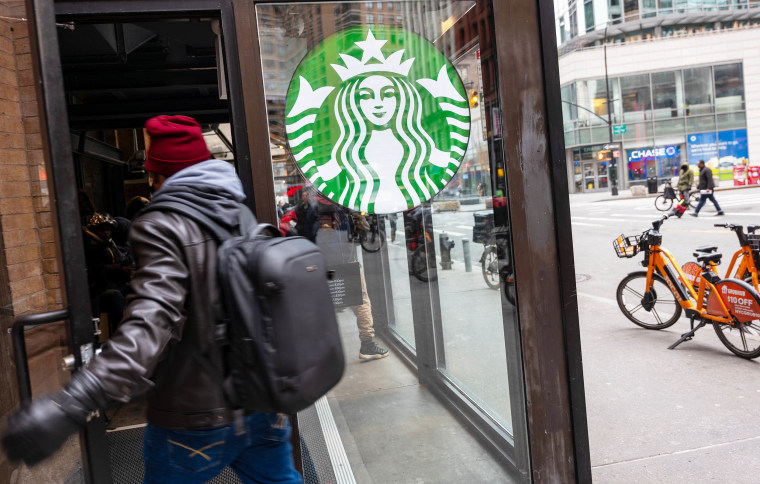Stopping into America’s largest coffee chain to use the bathroom while out and about? You’ll need to buy something first.
Starbucks is reversing its open-door policy, which allowed anyone to lounge in its cafes or use its restrooms without making a purchase. Spokesperson Jaci Anderson told the AP on Jan. 13 that the company’s new guidelines prioritize paying customers and that most other retailers have similar policies.
“We want everyone to feel welcome and comfortable in our stores,” Anderson said. “By setting clear expectations for behavior and use of our spaces, we can create a better environment for everyone.”

Starbucks did not immediately respond to a request for comment from TODAY.com.
But the policy change is also posted on Starbucks’ website, which says it aims to create a “welcoming environment” with “respect” for its customers and employees.
“We want to ensure our spaces are prioritized for use by our customers,” Starbucks wrote. “Our Coffeehouse Code of Conduct is something most retailers have and is designed to provide clarity that our spaces — including our cafes, patios and restrooms — are for use by customers and partners.”
Starbucks also will display the code of conduct in stores to “remind customers of the role they play” in the coffee chain’s goal to return to a “community coffeehouse that is inviting and welcoming.”
Forbidden activities inside of the chain’s cafes include misuse or disruption of its spaces, discrimination or harassment, violence or threatening language, smoking or drug use and more.
“We will ask anyone not following this code of conduct to leave the store and may ask for help from law enforcement,” reads the company’s code of conduct.
The coffee giant’s open-door policy was instated in 2018 after two Black men waiting for a friend were arrested for trespassing in a Philadelphia Starbucks. The incident was caught on camera, leading to public outcry as well as a statement from the city’s mayor Jim Kenney, who said it “appears to exemplify what racial discrimination looks like in 2018.”
In the years since, however, Starbucks has closed multiple stores, citing safety concerns reported by employees, which were mirrored in an open letter written by Starbucks senior vice presidents of U.S. operations Debbie Stroud and Denise Nelson.
The is in the midst of a major retooling under its new chairman and CEO Brian Niccol, who emphasised the company’s goals in a Jan. 9 message.